WORLD FOCUS
A fiery contest in Jakarta election
Charges of blasphemy and defamation plus probe over failed coup turn up the heat
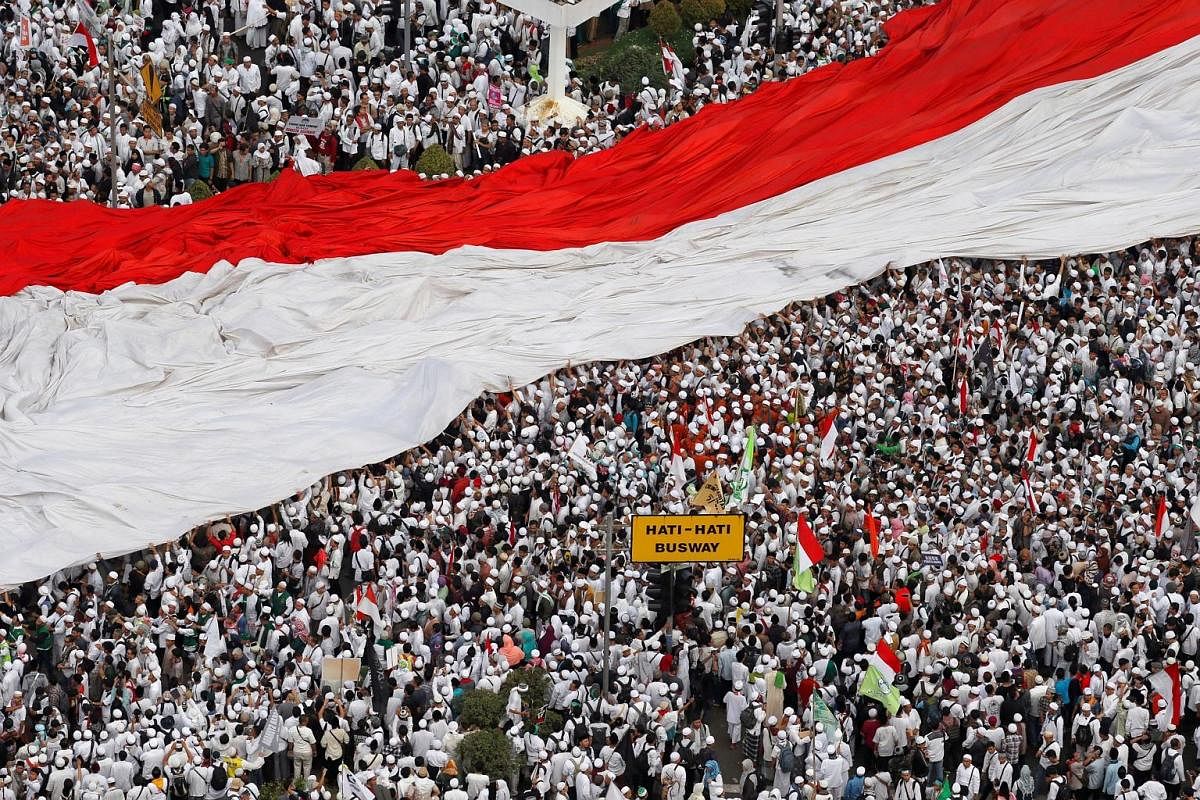
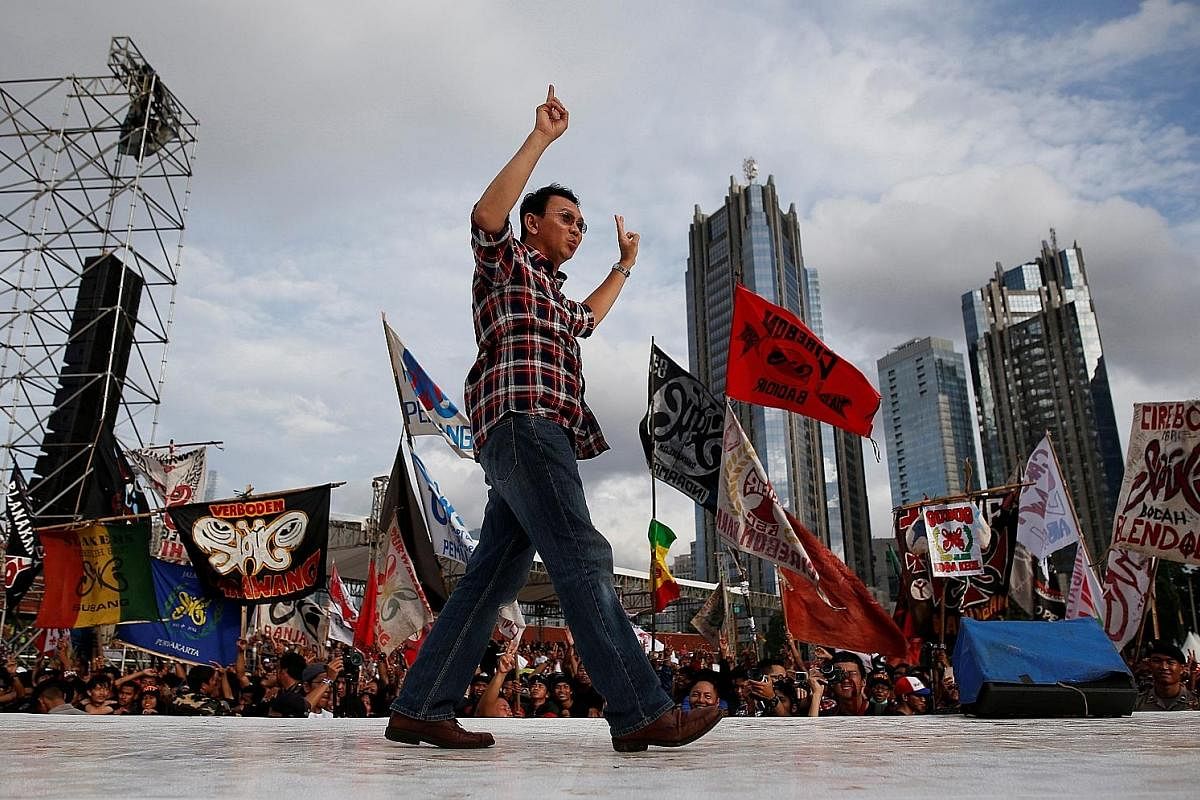
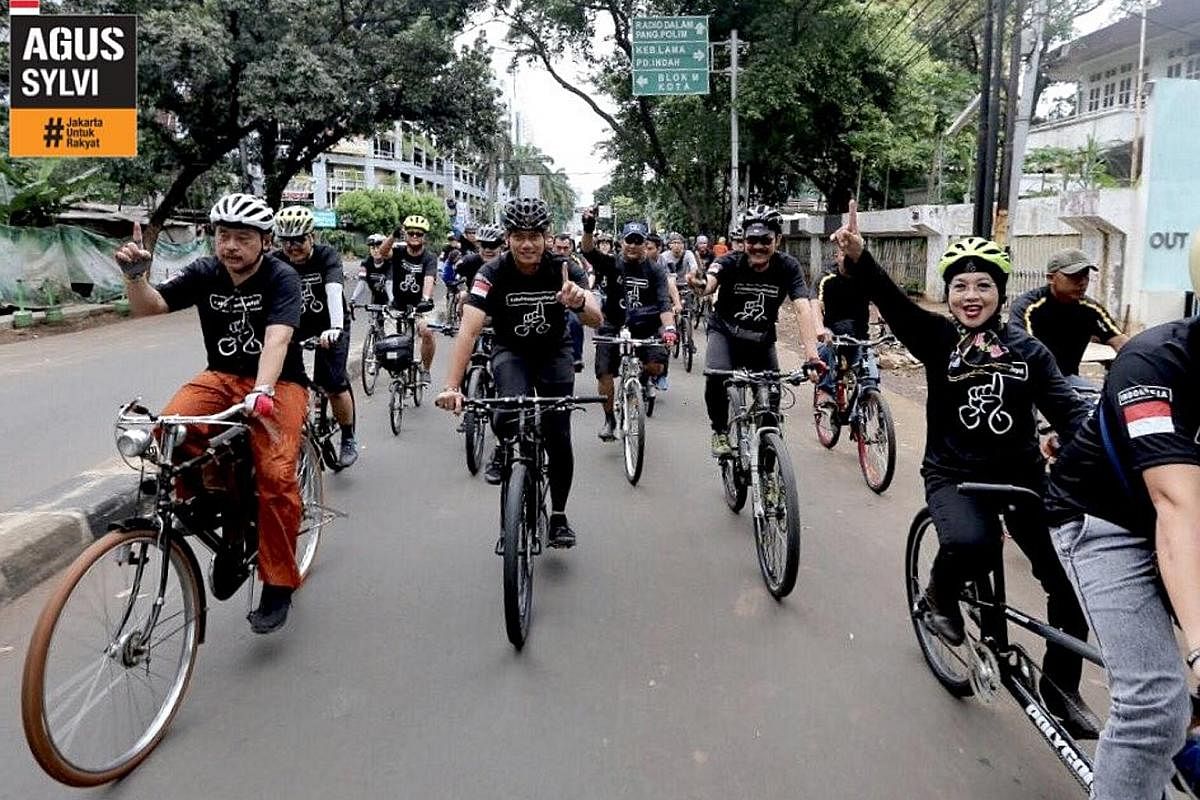
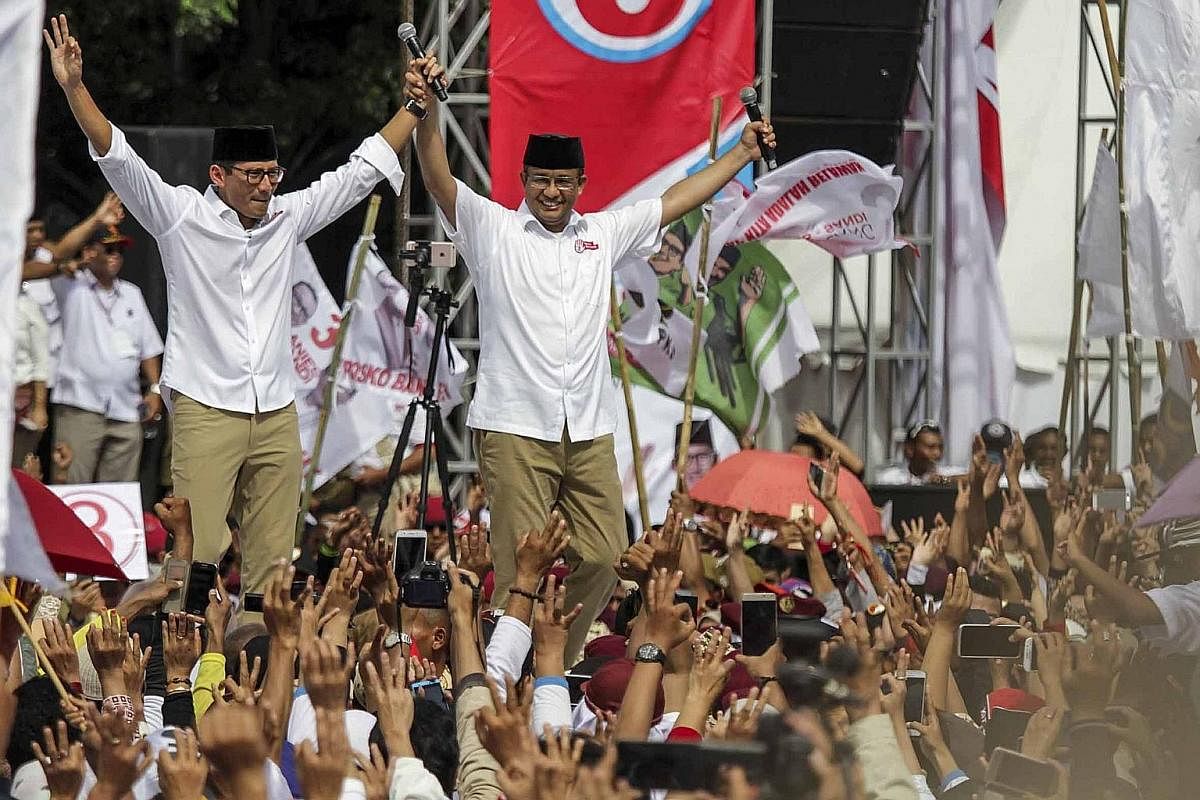
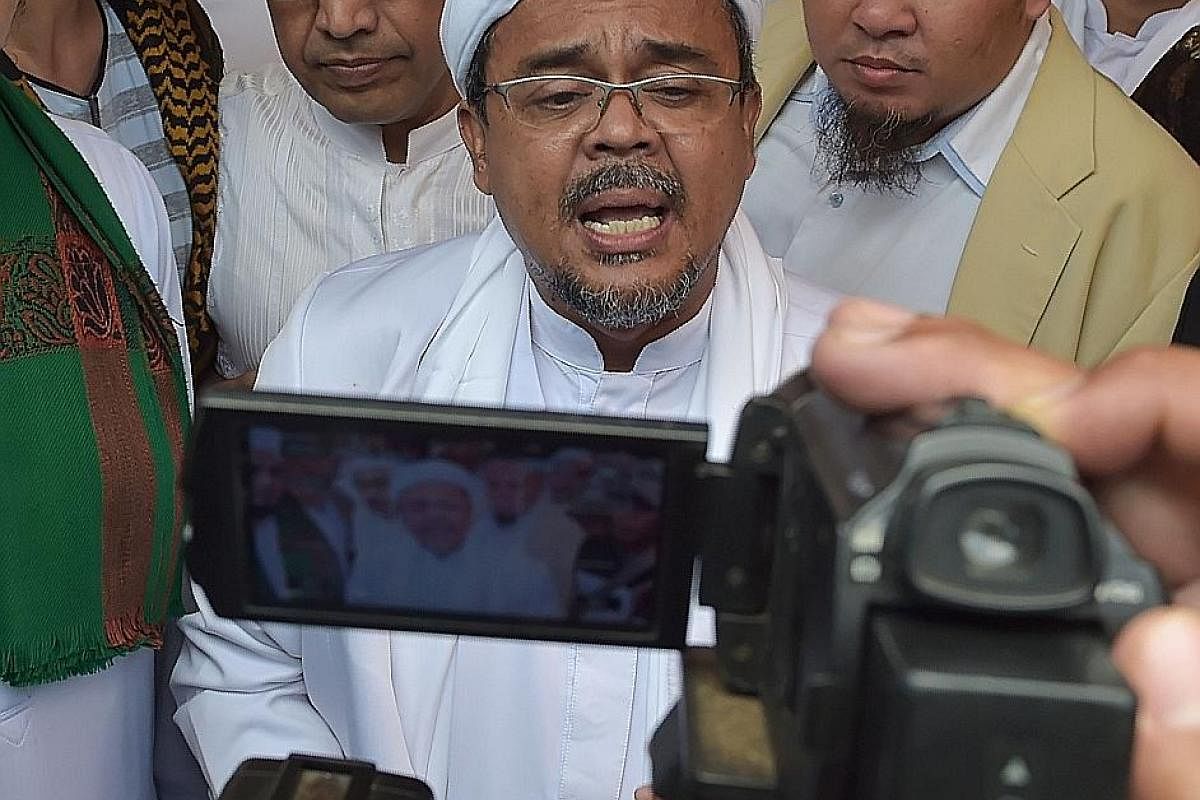
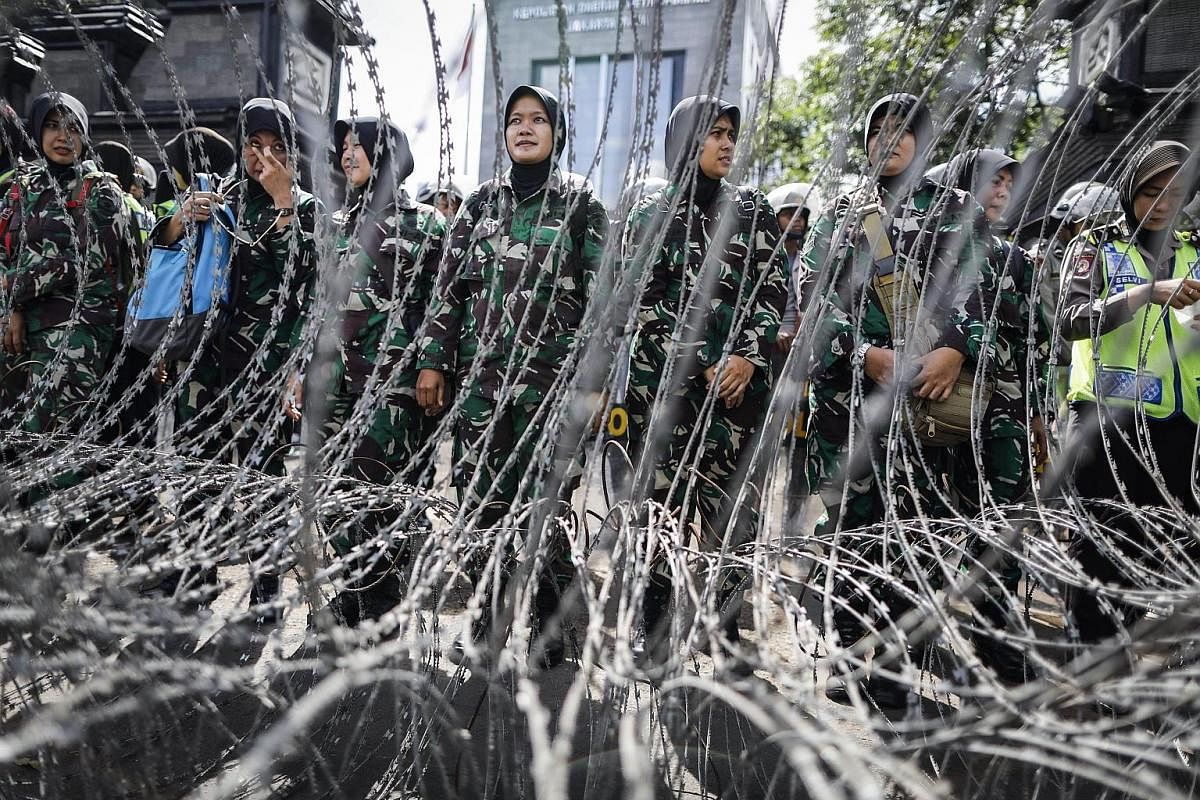
Indonesians across seven provinces, as well as major cities and smaller districts, will head to the polls on Wednesday next week to elect their local leaders.
But despite the elections covering a staggering 101 regions, all eyes from Aceh to Bali will be on the Jakarta gubernatorial race, where a fiery three-way contest to govern the country's capital is under way.
Political observers have said the Jakarta election may have a bearing on the 2019 presidential race, mainly because the city's last elected governor, Mr Joko Widodo, is now Indonesia's seventh president.
There has been speculation that Mr Joko may pick his former deputy Basuki Tjahaja Purnama, the Jakarta Governor seeking re-election, as his running mate in 2019 when he is seeking a second term.
The prospect of Indonesia, a Muslim-majority nation, having a Chinese Christian as a vice-president has turned up the heat of the Jakarta polls by several notches in recent months.
And this is not just because Basuki, better known as Ahok, is on trial for insulting Islam. But rather his bid to be re-elected also comes amid ongoing investigations over a failed coup against the government and a separate police probe into Islamic Defenders Front leader Rizieq Shibab for defamation.
A group of 12 or more high-profile political activists is still being questioned over a conspiracy to use the anti-Ahok protest on Dec 2, led by Mr Rizieq, as a cover to oust President Joko, while the police have also recently expanded their probe into Mr Rizieq to cover other crimes.
Besides being investigated for defaming founding president Sukarno, insulting the national ideology Pancasila and Christians, and making hate speech, Mr Rizieq is also being probed by the police over allegations that he had spread pornography.
The latest charge revolves around racy sex chats on WhatsApp, purportedly between Mr Rizieq, who is married with seven daughters, and Ms Firza Husein, the chairman of a community group.
His supporters have accused the authorities of trying to undermine Mr Rizieq's standing among Muslims, but the police maintain that they are duty-bound to investigate reports filed against anyone.
These developments on the sidelines of the hustings have turned the Jakarta election into a test of racial and religious tolerance in Indonesia, said observers.
Many, such as Professor Ikrar Nusa Bhakti of the Indonesian Institute of Sciences, say the ongoing blasphemy trial against Basuki and the police investigations into Mr Rizieq may distract voters and prevent the best man for the job from being elected.
"It is the most complicated election in Jakarta by far," he said. "During the last Jakarta election in 2012, they were also playing up the anti- Chinese and non-Muslim leader cards; now they are at it again."
Indeed, the race has been too close to call over the past few months, with all three pairs of candidates and their running mates having taken their turn to lead in the popularity polls.
Mr Basuki and his deputy Djarot Saiful Hidayat are backed by the ruling Indonesian Democratic Party - Struggle.
They are pitted against the Gerindra Party pair of former education minister Anies Baswedan and businessman Sandiaga Uno, and former army major Agus Harimurti Yudhoyono - the son of Indonesia's sixth president Susilo Bambang Yudhoyono - and veteran bureaucrat Sylviana Murni.
As expected, the candidates have campaigned hard on bread and butter issues such as job creation, urban renewal and the perennial issue of corruption.
However, most of their proposed solutions for those issues have been drowned out by political sideshows, including a move by Dr Yudhoyono to hold a press conference last week during which he accused the government of wiretapping his phone.
During the press conference, Dr Yudhoyono also sought to deny rumours that he had supported the anti-Ahok rallies or lobbied a Muslim cleric to issue a fatwa against Basuki for insulting Islam.
Mr Yunarto Wijaya, executive director of the Jakarta-based political think-tank Charta Politika, told Jakarta Globe last Thursday that he believed Dr Yudhoyono's move may have worked against his son Agus, whose electability ratings have fallen in the latest snap polls.
"The public is becoming increasingly suspicious that SBY is actually playing a role in Ahok's case," said Mr Yunarto, referring to Dr Yudhoyono by his initials.
"If he had remained silent, (Agus) would have gained sympathy."
Other experts say such brouhaha during an election is common, but they expect a majority of voters to pay attention to the key issues and vote for the right candidate.
But Prof Ikrar still believes issues of race and religion will influence how Indonesians cast their votes.
"The anger by some who didn't like Ahok's remarks related to (the Quranic) verses seems to have faded and his strong showing in the past two debates has made voters realise he has done a lot for Jakarta," said Prof Ikrar.
"But you also see Anies managing to tap the base of strict devotees of Islam... as shown by him and his running mate's recent decision to don Islamic wear and visiting Islamic schools and organisations. That has worked well for Anies."
Join ST's Telegram channel and get the latest breaking news delivered to you.
A version of this article appeared in the print edition of The Straits Times on February 07, 2017, with the headline A fiery contest in Jakarta election. Subscribe
